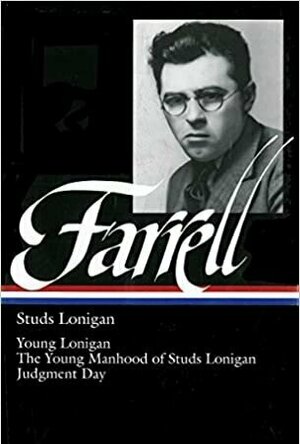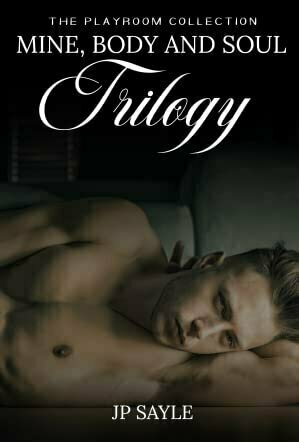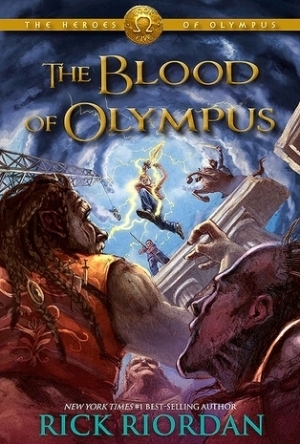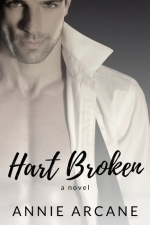
Studs Lonigan
Book
This Library of America volume contains one of the masterpieces of American naturalism and a major...

Mauritius - GPS charts offline maps Navigator
Navigation and Travel
App
Flytomap is a valid and interesting alternative, Benetti Yachts Top Ten 2011,2012,2013,2014,2015 &...

Boating Mauritius HD GPS Chart
Navigation and Travel
App
Flytomap is a valid and interesting alternative, Benetti Yachts Top Ten 2011,2012,2013,2014,2015 &...

Boating Greece HD GPS Charts
Navigation and Travel
App
Flytomap is a valid and interesting alternative, Benetti Yachts Top Ten since 2008 Featured in : On...

Hong Kong - GPS Map Navigator
Navigation and Travel
App
Flytomap is a valid and interesting alternative, Benetti Yachts Top Ten 2011,2012,2013,2014,2015 &...

Dominica - GPS maps offline charts Navigator
Navigation and Travel
App
Flytomap is a valid and interesting alternative, Benetti Yachts Top Ten 2011,2012,2013,2014,2015 &...

Cape Verde Islands charts GPS map Navigator
Navigation and Travel
App
Flytomap is a valid and interesting alternative, Benetti Yachts Top Ten 2011,2012,2013,2014,2015 &...
EmersonRose (320 KP) rated The Blood of Olympus (The Heroes of Olympus #5) in Books
Nov 20, 2019
Alright, now that that is out of the way, let me begin. This book is called Blood of Olympus, it is the fifth and final book in the Heroes of Olympus series (if you should ever desire to read these book, I would recommend starting with the Percy Jackson, and the Olympians series as this series is a sequel series. The author of this book is a writer by the name of Rick Riordan. This book is a young adult fantasy novel. It is the final chapter of the adventure of a group of seven young adults who happen to be demigods, modern day children of the ancient gods of Greece and Rome. This adventure, like many great adventures, is a race to save the world.
For me, the initial draw of the book was that it is a fantasy novel, which is one of my favorite genres, and its focus is on Greek Mythology, something of an obsession of mine. The mythology in these books may not always satisfy all mythology nerds because they do take liberties in how the myths are presented in order to showcase how they might have changed to fit in the modern day world. The way Riordan chooses to represent mythology is often fairly close to original stories, showing that he spends the time researching the myths, and they are clever, funny, and entertaining.
As I read the books, I found myself drawn to the relationships between the characters, not surprising as characters are a key draw for me in literature. By this point in the series, the relationships became especially interesting because you have known some of the characters for ten books now while others are just in their second or third book appearances. The central characters have grown into a substantial group that each have their own unique backgrounds, personalities, and even mythologies that create intriguing tension and bonds. Their bonds grow stronger as they work through new struggles and adventures with the added drama of them being a group of teenagers, which obviously means that there is a fair bit of romance involved as well.
For me personally to get into a story the most important aspect is to be very invested in61w3pqVMCZL._US230_ the characters. This does not mean I have to like them, but I do need to be completely invested in what happens to them. If the storyteller can do this, then I will most likely binge the entire thing whether book, movie, tv show, comic…. regardless whether or not the story is good or my normal cup of tea. This was definitely an initial draw in me reading this second series because I was already very invested in both Percy and Annabeth’s characters, who are among the main characters in this series and the main characters in the previous series. The majority of the characters in this book did capture my emotional investment, which kept me reading all five books, but there were a few I found lacking. Maybe I am the only one who felt this, but I thought that Riordan didn’t spend enough time on some of the new characters to pull me into their plots. Unfortunately, this is common in stories that feature such a large cast of main characters, had the time on each character been even plot points might not have been as successful and honestly, I might have been annoyed to not spend as much time on my favorites.
I would be lying if I were to say this was my favorite book in this series but I still greatly enjoyed it. Besides my problem with not feeling emotionally invested enough in some of the characters, I really do not have any other complaints about the book. It was successful in finishing this series story arc while having plenty of plot of its own. And it ended wrapping just about everything up so that I was satisfied, but open enough to still want more. If this were a regular series, the leftover cliffhangers would be dreadful! But Riordan writes series that capture over-arching plots but that connect to his other book series in this same world, so an ending like this simply promising more books about these characters in another series.
Overall I liked this book, if young adult fantasy is your genre, then I would definitely suggest looking at these books. They do what I require of my urban fantasy stories, mix magic into our real world enough that a part of me can almost believe it could be possible. Characters, world, and plot flowing together into an engaging story that obviously captured my interest enough to read ten and counting of these novels.
*This was a review I found while cleaning that I write a few years ago. I have since read two more Riordan novels and counting! I love the way Riordan writes and appreciate how he seems to continually grow as a writer, always tackling new issues and allowing his characters to have growth. Annabeth and Percy especially, they are two of my all-time favorite characters. I highly recommend reading his books!
Beckie Shelton (40 KP) rated Hart Broken (Cale & Mickey #1) in Books
Oct 6, 2017
This is one book I was really looking forward to devouring and then to realise it's part of a series, well it just made my day.
So Hart Broken is the tale of Mickey Hart and Cale Windermere, it begins when Cale rescues an inebriated Mickey one night and after the encounter, he falls fast.
Mickey herself is a screwed up mess, but she really does like her wickedly handsome knight who just happens to be in a wheelchair.
Hart Broken follows these two lovers as they traverse the rocky road to a HEA.
So I really loved this book it certainly helped that our two main characters were exceptionally likeable and yummy.
So to give my take on these two, let's start with Cale, I adored his sense of humour and lopsided smile, it was super cute and adorable how he thought of Mickey "This Girl"
I loved how capable Cale was and that he didn't wallow in what if's, just takes his hand in life and gets on with it.
I also adored the peek we got of his vulnerable side, the glimpse into his head showcased his inner insecurities, whatever the face he put on to the outside world. It humanised Cale to the reader.
Also, his relationship with his parents and brother show such an appealing picture looking in.
Now, Mickey, she's a bit of a flake, an enchanting one, a bit all over the place, but she does mean well. Mickeys past and her enormous mountain of baggage is definitely impacting her here and now.
So Hart Broken starts by lulling you into a false sense of security, everything's puppies and roses Mickey and Cale are all loved up then wham Mickey self-sabotages herself, Lots of Baggage from Mickey sigh.
The rest of this novel traverses the path and obstacles these two lovers have to overcome to fully connect again.
I really enjoyed the way this was written the dialogue had a punchy feel to it that was easy to immerse yourself in.
If I had to find a criticism of Hart Broken it would be the sex, I would have liked to know more about the mechanics of the act, I was actually and still am a bit confused as to the how.
I know that Cale took something to enable him, but then it mentioned he could feel nothing below the waist, so was this just for Mickey's benefits?
mmm, Some clarity on this would be much appreciated.
I actually won an E-Copy of Hart Broken in a Facebook giveaway so glad I did As I really enjoyed this and am so looking forward to reading the next instalment, its definitely on my HUGE TBR pile.
So would I recommend this, of course, it's a hot sexy read whats not to love.
Reviewed By Beckie Bookworm
https://www.beckiebookworm.com/
https://www.facebook.com/beckiebookworm/
https://www.goodreads.com/user/show/9460945-bex-beckie-bookworm

Mine, Body and Soul: Trilogy (The Playroom #1-3)
Book
Part One Was it possible that there was a man out there who could see past Lenny’s damaged body...
Contemporary MM Romance BDSM

